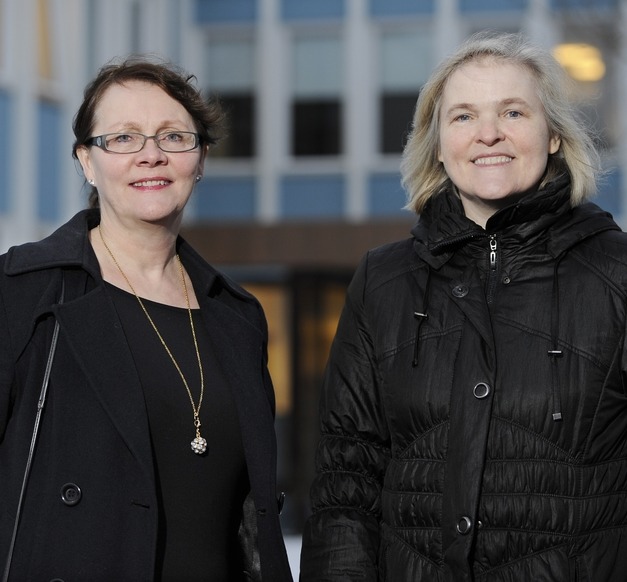Tablets and their use of in education and teaching is the main subject of a study Sólveig Jakobsdóttir, Associate Professor in distance education studies, and the doctoral student Skúlína Hlíf Kjartansdóttir have been working on. This is a developmental project called Tablets in Norðlingaskóli (primary school) and is a co-operative project of Norðlingaskóli, UoI School of Education and other parties.
The project was launched in the beginning of 2012 and will be completed at the end of the school year 2012-2013. “The aim is evaluate the influence of using tablets (iPads) in education and teaching in the 9th and 10th grade of primary school and on school development in Norðlingaskóli. We talk to teachers, students and interested parties; conduct surveys among parents, students and teachers as well as performing on-site observartions,” says Jakobsdóttir. Six master students at the School of Education have assisted them in the gathering and processing of data.
Employees of the youth department in Norðlingaskóli initiated the developmental project. „We found the project very interesting and offered to evaluate it on behalf of the Centre for Research on ICT and Media in Education at the School of Education. Kjartansdóttir has worked on the evaluation with me and she is also studying the use of tablets in the Biophilia-project,” says Jakobsdóttir; referring to the Biophilia-music & science workshop; a collaborative project with the Musician Björk, University of Iceland and the City of Reykjavík.
The preliminary results of the study were introduced at Menntakvika, the School of Education‘s conference, in the autumn of 2012. “The evaluation showed that the adaption in the first semester was mostly successful. The use of tablets spread outside the school, into the home and other places occupied by student; thus creating a platform for studying outside the formal educational context,” says Kjartansdóttir. She adds that the study also revealed increased satisfaction, interest and independence in students in their studies and better use of time spent in classes.
Jakobsdóttir points out that several studies show that the influence of computerisation is limited in Icelandic primary schools. “The renewal of computer equipment is due in most Icelandic primary schools. Tablets or portable technology is a viable option, it is thus important to gather as much data and information on their usage as possible as well as digital curriculum,” says Jakobsdóttir on the importance of the study.
Kjartansdóttir adds that the project organisers have noticed a great deal of interest in these matters among teachers all over Iceland. “An example is the Facebook group Tablets in education and teaching, that three graduate students at the School of Education launched last spring, that now has over 1000 members and is a venue for an on-going dialogue on the possibilities offered by tablets in education and teaching,” says Kjartansdóttir.



